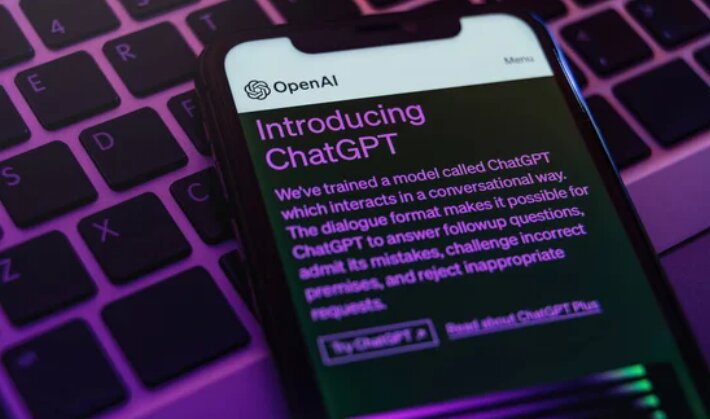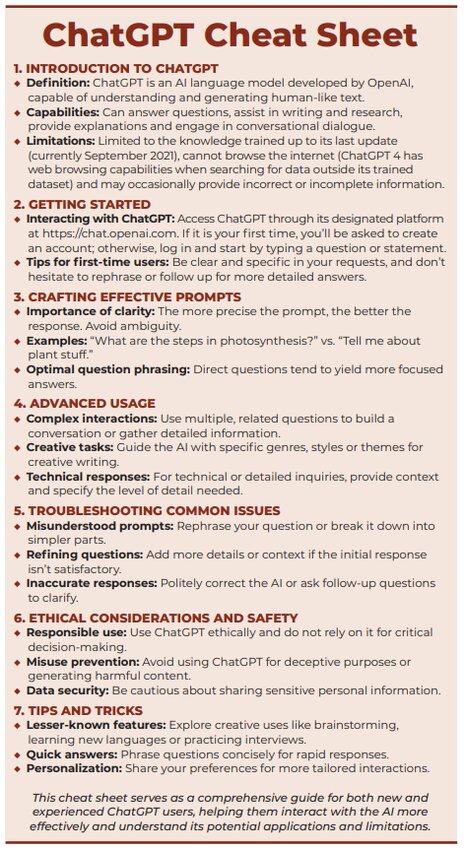
In celebrating the first anniversary of ChatGPT on Nov. 30, it’s remarkable to consider how this “modern” artificial intelligence, better known as ChatGPT, has evolved from a niche tool into a global phenomenon. Artificial Intelligence (AI) has been around since the 1950s, but it was once the realm of a few with access to significant computing power, storage and programming skills. What used to be known as predictive analytics and machine learning has now entered the mainstream, thanks to ChatGPT.
While virtually everyone has heard of ChatGPT, how many know what it is? Or is it one of those nebulous ideas everyone talks about but few have known or used? Or maybe it’s a technology or category that is moving so fast that you just don't know what you don't know or struggle to figure out where to start. I hope this article will shed more light on it. More importantly, I will remind you that it's the most transformative technology since the introduction of the internet, but it's evolving 100 times faster.
The introduction of ChatGPT is akin to the birth of the internet, or more precisely, the advent of the web browser. Before web browsers, the internet was used mainly by developers and academics. Similarly, ChatGPT has turned AI into a tool for everyone, making it as accessible and revolutionary as the web browser was in its time.
But what exactly is ChatGPT? GPT stands for “Generative Pre-trained Transformer.” It’s an AI model developed by OpenAI for natural language processing tasks. The “Generative” part indicates its ability to create text; “Pre-trained” signifies it was trained on a large dataset before being fine-tuned for specific tasks. “Transformer” refers to the type of neural network architecture it uses, effective for handling sequential data like language.

ChatGPT has taken the world by storm, along with its fellow generative AI counterparts like Dall-E, Stable Diffusion and Midjourney in the text-to-image world. It’s not just about writing text. ChatGPT can assist in drafting documents, summarizing complex information, generating creative ideas and even more nuanced tasks like coding.
At a recent event of media executives, when asked how many had used ChatGPT, about half the room raised their hands. However, only a fraction had explored ChatGPT4, the paid version. This disparity highlights a crucial point — while many are aware of ChatGPT, its deeper, more nuanced capabilities remain largely untapped in professional settings.
For clarification, ChatGPT 3.5 is a free product available at https://chat.openai.com. It is trained on roughly 300 billion words from the “open” internet with a cut-off date of 1/22, according to itself. ChatGPT 4.0’s data set is cut off on 4/23.
ChatGPT isn’t just a professional tool. Its implications stretch into our daily lives. From helping with homework to planning trips, ChatGPT is becoming a go-to assistant for a variety of tasks. Its ability to understand and generate human-like text makes it an invaluable tool for simplifying complex ideas, making it a favorite among educators and students alike.
Like the internet, its uses are far-reaching. Its friendly and conversational dialog, even multilingual capabilities, make its applications limitless. And it’s free. Well, at least the base version. ChatGPT 4.0 offers more sophisticated logic, the ability to browse the internet in search of answers and the ability to upload documents for training.
The impact of ChatGPT and generative AI on the job market is a topic of much debate. Professions that involve rules-based tasks or rely heavily on processing large amounts of information, like journalism, law, medicine and architecture, will likely see significant changes. The potential of AI to augment human capabilities is immense, but it also raises questions about the future of these professions.
Augmentation is critical to understanding the true value of ChatGPT and any other generative AI. These tools in the hands of a skilled professional will be 10x their capability. Developers will be able to code faster, and doctors and lawyers will have the knowledge of their entire profession at their fingertips. The fear of job elimination will be balanced with new job creation.
With great power comes great responsibility. The rise of ChatGPT brings forth ethical considerations around privacy, misinformation and the digital divide. As we harness the capabilities of AI, we must also navigate the moral and societal implications it presents.
As we celebrate one year of ChatGPT, we stand at the cusp of a new era in AI and digital interaction. The journey of understanding and leveraging ChatGPT is just beginning. For everyone, from tech enthusiasts to everyday users, the future promises a landscape where AI is an integral part of our lives, redefining how we work, learn and interact.
For grins!
When ChatGPT first emerged, one of the examples people liked to show was its summarization skills by asking it to “explain (fill in the topic) like I was a five-year-old.” For grins, I asked ChatGPT 4 to explain ChatGPT to me like I was a media executive, and this is what it returned:
As a media executive, you're keenly aware of the importance of communication, audience engagement and content relevance. ChatGPT is a tool that can significantly enhance these aspects in the digital sphere.
- What ChatGPT Is: ChatGPT is an advanced AI-driven chatbot developed by OpenAI. It's built on the Generative Pre-trained Transformer (GPT) model, designed to understand and generate human-like text responses.
- Capabilities: ChatGPT can conduct conversations, answer queries, generate creative content and even simulate specific writing styles. It's trained on a vast array of internet text, enabling it to discuss a wide range of topics with a high degree of coherence and relevance.
- Applications in Media: For media companies, ChatGPT can be a game-changer. It can be used for interactive storytelling, responding to audience inputs to shape narratives. It's also an excellent tool for customer service, engaging with audiences in real-time, providing information and even handling complaints. Furthermore, it can assist in content creation, from drafting articles to creating dialogue for scripts.
- Personalization and Engagement: ChatGPT can personalize interactions based on user input, making it ideal for tailoring content and recommendations to individual preferences. This level of personalization can significantly enhance audience engagement and loyalty.
- Ethical Considerations: While ChatGPT offers immense possibilities, it's vital to consider ethical implications. Issues such as data privacy, potential biases in AI responses and the need for human oversight in content generation are critical.
- Staying Ahead of the Curve: In an industry that thrives on staying ahead of technological trends, understanding and integrating AI tools like ChatGPT can provide a competitive edge. It's not just about automating tasks but also about enhancing creativity, audience connection, and delivering cutting-edge digital experiences.
ChatGPT represents a potent blend of AI and language understanding that can transform various aspects of the media industry, from content creation to audience interaction.
Guy Tasaka is a seasoned media professional with a 35-year track record of leading change in the industry. He has collaborated with renowned organizations such as Macworld Magazine, Ziff-Davis and The New York Times, where he honed his expertise in research, strategy, marketing and product management. As the former chief digital officer at Calkins Media, Guy was acknowledged as the Local Media Association's Innovator of the Year for his work in advancing OTT and digital video platforms for local news organizations. He is also the founder and managing partner of Tasaka Digital, specializing in helping media and technology companies navigate business transformations using his extensive experience and forward-thinking approach. Guy can be reached at guy@tasakadigital.com.
Comments
No comments on this item Please log in to comment by clicking here